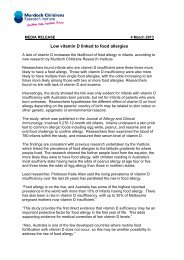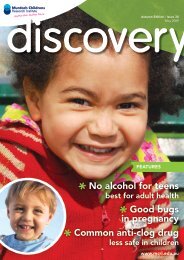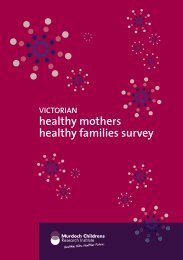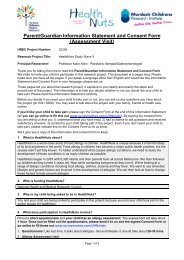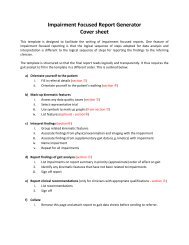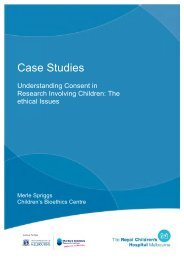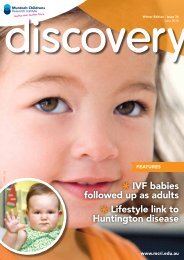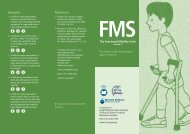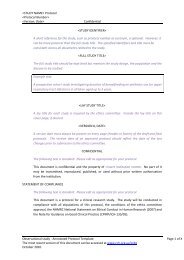Case studies: - Murdoch Childrens Research Institute
Case studies: - Murdoch Childrens Research Institute
Case studies: - Murdoch Childrens Research Institute
You also want an ePaper? Increase the reach of your titles
YUMPU automatically turns print PDFs into web optimized ePapers that Google loves.
2. Does it depend on what sort of group it is?<br />
Comments:<br />
The acceptability of unobtrusive observation, the need for HREC review and<br />
consent can depend on what sort of group it is and the vulnerability of the members<br />
in the group. Members of a pro-anorexia group could be considered a vulnerable<br />
group because of their psychiatric status e.g. care should be taken to determine<br />
whether participant’s mental illness “increases their susceptibility to some forms of<br />
discomfort or distress” [NS 4.5.2].<br />
The nature of some groups is such that even unobtrusive observation can end up<br />
with researchers unintentionally destroying the thing they are researching e.g.<br />
internet communities such as support groups in which members do not expect to be<br />
observed by outsiders:<br />
When I joined this, I thought it would be a support group, not a fishbowl for a<br />
bunch of guinea pigs. I certainly don’t feel at this point that it is a safe<br />
environment, as a support group is supposed to be, and I will not open myself up<br />
to be dissected by students or scientists. 12<br />
3. If the researcher changes pseudonyms and paraphrases quotes, is this<br />
sufficient to avoid identification of individuals?<br />
Comments:<br />
It may not be if the group is from a relatively small population and easily recognised<br />
because they are a minority group e.g. a pro-anorexia site. Search engines such as<br />
Google add to the possibility of identification of individuals even if pseudonyms are<br />
used.<br />
Further questions:<br />
4. If a researcher felt that the identity of individuals in a ‘pro-anorexia’ website<br />
support group need not be protected given that they promote harm to self<br />
and others, would this be relevant?<br />
Comments:<br />
On the face of it there may seem to be no justification for protecting the identity of<br />
individuals who promote harm to self and others but it should be remembered that<br />
12 Eysenbach Gunther, Till James E. (2001). Ethical issues in qualitative research on internet communities, BMJ.<br />
323: 1103-1105. P.1104<br />
<strong>Case</strong> Studies 11



